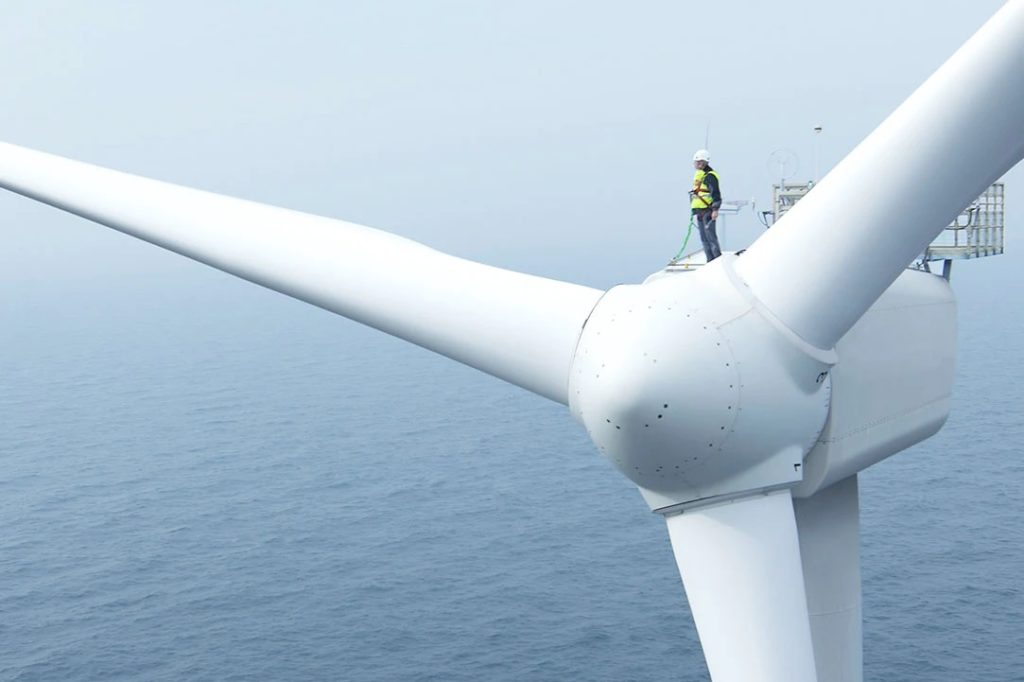Representatives from community group Love Norah Head, Love the Coast, concerned residents and members of the commercial fishing community have outlined their concerns over a proposed wind farm off the Central Coast in a meeting with government representatives.
They met with Branch Head Paul Murphy and Manager of Implementation Belinda Wilson from the Offshore Renewables Branch of the Department of Climate Change, Energy, the Environment and Water (DCCEEW) last week.
The Hunter Offshore Renewable Energy Area (HOREA) is proposed for an area 10km off the coast from Port Stephens to Norah Head.
Love Norah Head, Love the Coast spokesperson Kate Keys said the meeting was the result of a groundswell of concerns being raised to the Australian Energy Infrastructure Commissioner.
“The residents have major concerns around the 700+ offshore wind turbines each higher than Centrepoint Tower (now known as Sydney Tower Eye) being planned within 10kms of the Central Coast shore,” she said.
“We aren’t anti renewable; we understand the need to stop climate change – it affects my business directly.
“We just need to make sure that any renewables are implemented responsibly and not at the expense of our oceans and local community.
“We believe that the DCCEEW’s consultation period was a farce; very few local resident knew about it and therefore the opportunity to have their say was denied.”
Keys said the 1900 odd submissions received from the Hunter and Central Coast regions was not reflective of the more than one million residents and industries likely to be impacted.
“We had been asking for weeks to have our concerns heard because the consultation period happened in secret and many of our residents still didn’t even know these massive turbines were planned for our coastline,” Keys said.
“The DCCEEW told us it would not be undertaking its own independent environmental studies of our unique and sensitive area; that it was up to the international developers to self-certify and pay for their own studies.
“When we when asked about decline in tourism, industry, house prices etc DCCEEW said it was (up to) the international developers to decide if they needed to pay out any compensation to industry and residents.
“As many of us have worked our whole lives to afford our homes and grow our own businesses this is just a kick in the face.”
Keys said the group was told it was also up to the international developers to determine if the area is suitable for the proposal and to address issues such as shipping congestion, mitigating the risk collision with whales and migrating birds, detachment of turbines ending up on the shore and ships crashing into the farms.
“We just can’t believe such important decisions about our community, our environment and our lifestyles can be left up to foreign companies (which) stand to gain financially while potentially ruining our coast,” she said.
Love Norah Head, Love the Coast member Nick Anderson said the meeting was useful in that attendees has a chance to put their concerns forward and identify issues not considered by the DCCEEW.
“We have opened up communication channels with the DCCEEW and would welcome further discussions to relay community concerns,” he said.
The group is asking for the consultation period to be re-started and for more independent environmental studies to be done before the proposal proceeds.

A spokesperson for the DCCEEW said the Australian Government is “committed to genuine consultation with all communities and local groups regarding the proposed Hunter offshore wind zone”.
“We have hosted a 65-day consultation, which included community information sessions at Wamberal and Doyalson in the south, Swansea, Newcastle, Bar Beach and Nelson Bay and Hawks Nest to the north,” the spokesperson said.
The spokesperson said the concerns of the Norah Head community would be considered, along with the 1,916 submissions received, before a final offshore wind zone off the Hunter is declared.
“The community feedback has highlighted support for job opportunities, investment in local manufacturing in the region and the need for more affordable energy,” the spokesperson said.
“As well as issues around how marine life could be impacted by future infrastructure development and the visibility of turbines from the coast.
“After a zone is declared, project proponents must also bid for feasibility licences and adhere to strict environmental processes through the EPBC before a project can go ahead.”
Terry Collins


